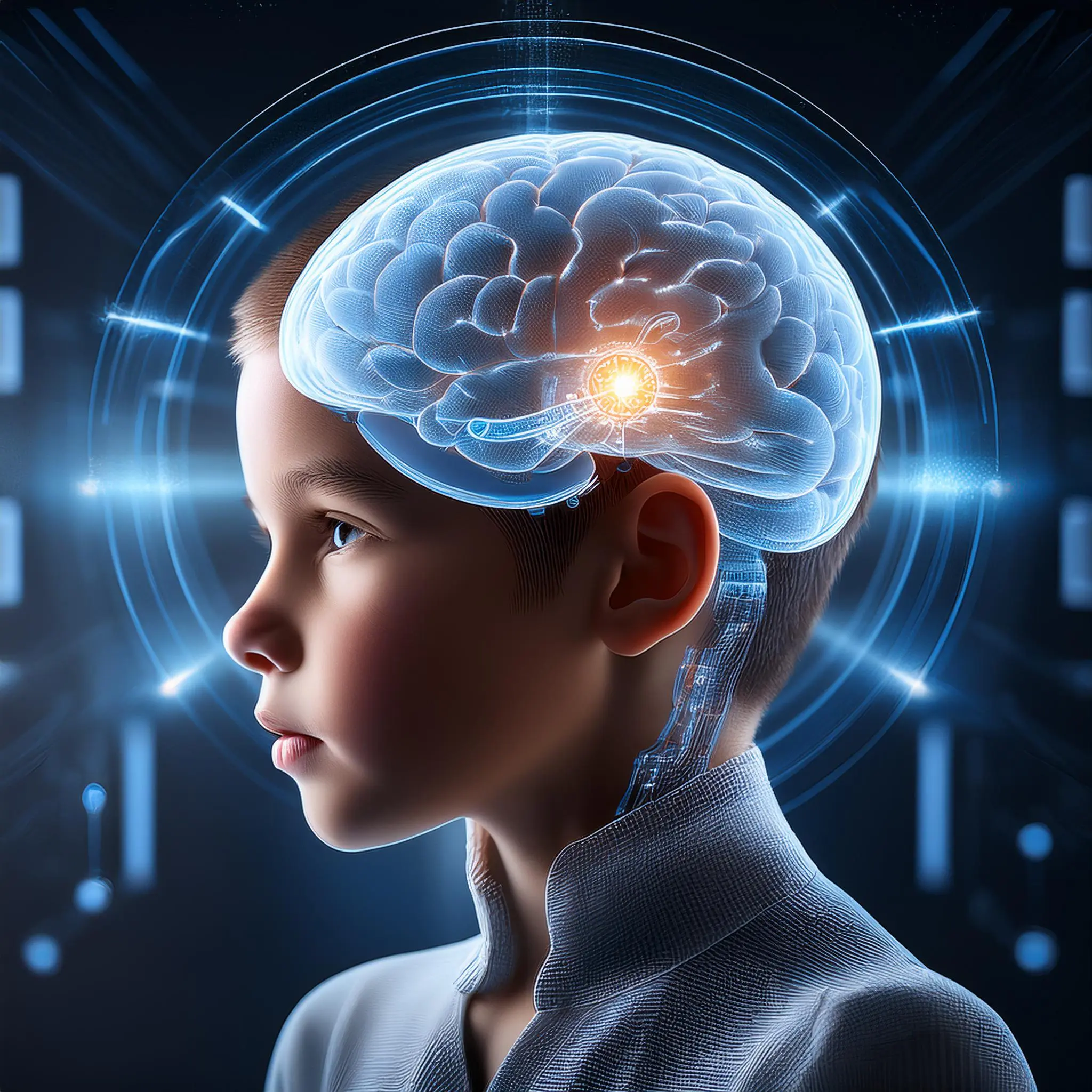Cognitive development refers to the process by which children acquire knowledge, think, reason, and understand the world around them. From their earliest days, children are absorbing information, forming ideas, solving problems, and making sense of their surroundings. Cognitive growth is as essential as physical development and is the foundation for lifelong learning, decision-making, and problem-solving.
As parents and caregivers, supporting and nurturing cognitive development is crucial in providing children with the tools they need to navigate the world. To learn more about the stages and strategies for promoting cognitive development, visit the Child Development Institute for expert advice and resources.
In this post, we will explore the importance of cognitive development, key stages, and ways to support your child’s intellectual growth.
Why Cognitive Development Matters?
Cognitive development is not just about academic learning—it’s about how children think and process information. This development affects how they:
- Understand and Interact with the World: Cognitive development helps children make sense of their environment, communicate their needs, and interact with others. It involves the acquisition of skills like perception, memory, attention, and problem-solving.
- Build Critical Thinking Skills: As children grow, they develop the ability to reason, analyze, and make decisions. A well-developed cognitive foundation enables children to think critically about situations, learn from mistakes, and make informed choices.
- Enhance Problem-Solving Abilities: Children with strong cognitive skills are better at solving problems and overcoming challenges. They can apply strategies to understand complex situations, identify solutions, and adapt to new challenges.
- Promote Emotional and Social Development: Cognitive skills also play a role in emotional regulation and social interactions. Understanding their own thoughts and emotions, as well as those of others, helps children navigate relationships and develop empathy.
- Foster Academic Success: Cognitive development is the key to mastering subjects like reading, math, science, and language. A strong foundation in cognitive abilities allows children to perform well academically and continue learning throughout their lives.
Key Stages of Cognitive Development
Cognitive development unfolds in stages, and while each child is unique, there are general patterns and milestones. Renowned psychologist Jean Piaget identified several stages of cognitive development in children, each marked by specific skills and abilities.
- Sensorimotor Stage (0-2 years)
- Key Cognitive Abilities: Infants begin to explore the world through their senses and actions. During this stage, children develop object permanence (understanding that objects continue to exist even when they can’t be seen) and begin to understand cause and effect.
- Developmental Milestone: Around 8-12 months, babies start to realize that their actions can create changes in the environment, such as shaking a rattle to produce sound.
- Preoperational Stage (2-7 years)
- Key Cognitive Abilities: In this stage, children begin to use language, engage in symbolic play (pretending a stick is a sword, for example), and understand simple concepts. However, they may struggle with abstract thinking or seeing things from another person’s point of view (egocentrism).
- Developmental Milestone: Around age 3, children develop the ability to engage in imaginative play, and by age 5, they may begin to ask “why” questions, demonstrating curiosity and a desire to understand the world.
- Concrete Operational Stage (7-11 years)
- Key Cognitive Abilities: Children at this stage can think logically about concrete events and objects. They develop the ability to perform mental operations (such as addition and subtraction) and understand the concept of conservation (understanding that quantity doesn’t change even if the shape or appearance of an object changes).
- Developmental Milestone: Around ages 7-8, children begin to understand that the same amount of liquid can fit in different shaped containers and that it remains the same despite the container’s shape.
- Formal Operational Stage (12 years and up)
- Key Cognitive Abilities: Adolescents begin to think abstractly and logically about hypothetical situations. They can consider multiple variables in solving problems and think about future possibilities. They also develop the ability to reason about moral, philosophical, and ethical issues.
- Developmental Milestone: By age 12, children are capable of solving complex problems in their minds, without needing to physically manipulate objects. They can consider abstract concepts like justice, love, and freedom.
How to Support Cognitive Development?
Parents and caregivers can play an instrumental role in supporting their child’s cognitive development. Here are some ways to promote healthy intellectual growth:
- Provide a Stimulating Environment
Children’s brains thrive in environments that stimulate curiosity and encourage learning. Surround your child with age-appropriate toys, books, puzzles, and activities that challenge their thinking. The more your child is exposed to diverse experiences, the more opportunities they have to explore, ask questions, and make connections. - Encourage Play-Based Learning
Play is essential for cognitive development. Through play, children develop problem-solving skills, creativity, and social abilities. Engage in activities like building blocks, drawing, or pretend play that allow your child to use their imagination and develop critical thinking. - Promote Language Development
Language is key to cognitive development. Talk to your child regularly, describe objects and actions, and ask open-ended questions that encourage conversation. Reading aloud to your child, discussing the story, and encouraging them to ask questions all contribute to developing vocabulary and comprehension skills. - Foster Curiosity and Critical Thinking
Encourage your child to ask questions and explore new topics. When they ask “Why?” or “How?” try to answer thoughtfully or guide them toward discovering the answer themselves. This fosters problem-solving skills and nurtures their ability to think critically. - Provide Hands-On Learning Opportunities
Hands-on experiences help children better understand concepts and apply their thinking in practical ways. Activities like cooking, gardening, visiting museums, or simple science experiments provide real-life contexts for learning and can spark a love of discovery. - Limit Screen Time and Encourage Active Engagement
While educational apps and television programs can support learning, excessive screen time can hinder cognitive development by reducing the time children spend engaging with their physical environment and interacting with others. Balance screen time with physical activity, outdoor play, and family interactions. - Set Realistic Expectations
Children develop at different rates, and it’s important to recognize that not all children will reach cognitive milestones at the same time. Be patient and offer support at the right level for your child’s abilities. Provide opportunities for them to stretch their cognitive abilities, but avoid pushing them too hard too quickly. - Encourage Problem-Solving and Decision-Making
Giving children opportunities to solve problems on their own can significantly boost cognitive development. Start with simple challenges, like puzzles, and gradually introduce more complex situations. Encourage your child to think through solutions, make decisions, and evaluate the outcomes. - Support Emotional and Social Development
Cognitive development is linked to emotional and social development. Children who are emotionally secure and socially engaged are better able to focus, learn, and think critically. Provide a supportive, loving environment where children feel safe to express themselves and build social connections with others. - Offer Praise and Encouragement
Positive reinforcement helps children develop confidence in their cognitive abilities. Celebrate successes, whether big or small, and provide encouragement when they face challenges. This builds resilience and helps children develop a growth mindset, which is essential for continued cognitive development.
Final Thoughts
Cognitive development is an ongoing process that shapes how children understand and interact with the world. By fostering a stimulating, supportive, and nurturing environment, you can help your child develop the cognitive skills needed for success in school, relationships, and life. Encouraging curiosity, critical thinking, problem-solving, and communication lays the foundation for a lifetime of learning and growth. As your child navigates through the stages of cognitive development, remember that patience, encouragement, and consistent support are key. By engaging with your child in meaningful ways and providing opportunities for exploration and growth, you will empower them to unlock their full cognitive potential.

